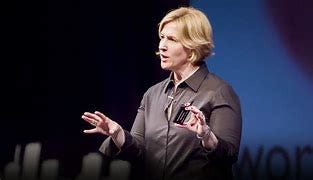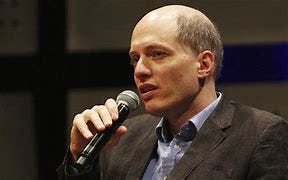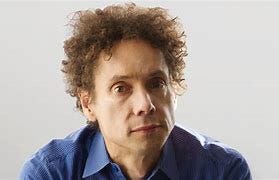Gen X's #1 Popular Thinker
Previous generations used the term “public intellectual”. Since 1994, we’ve had the nice buzzword “thought leader”. I like both terms, but “popular thinker” seems the best of the three terms.
Who are our leading popular thinkers? I suppose they need to have sold ten million books / audiobooks. They need to have addressed a range of topics. They need to be a bit more than a self-improvement “guru” (Tony Robbins) or lifestyle “guru” (Tim Ferriss) or “science guy” (Brian Cox) and shouldn’t get too political (Jordan Peterson). Although I regard all four of these thinkers as worthy of our time and attention.
Let me know if a fourth person comes to mind for you, but I think only three people born in the 1960s and 1970s — which I delineate as Generation X — meet the criteria:
Brene Brown, the professor from Texas, with her brilliant, well-researched views on vulnerability, shame, empathy, and courage.
Alain de Botton, the British author and founder of The School of Life who applies philosophy (and other wisdom) to our daily living.
And Malcolm Gladwell, the Canadian journalist, author, and podcaster.
Let’s add two more criteria. While TED talks and YouTube videos and podcasts are all for the best, for our generation, still, most of us should have heard or seen the person a few times (or at least once) on a radio or television show. And the person should have shaped some of our conversations with each other.
Well, then one public intellectual, one thought leader, one public thinker born in the 1960s and 1970s stands out clearly as number one: Malcolm Gladwell.
(Gladwell has also taken on a much wider variety of topics than Brown or de Botton.) I’ll circle back and write about both Brown and de Botton in the near future (and Robbins and Peterson).
So, what to make of Gladwell?
First, he’s far from perfect.
He just brought out a whole new book, Revenge of the Tipping Point, refuting, even repudiating, large points he made in his previous bestseller The Tipping Point. His honesty is honorable and admirable and rare. But what are we supposed to do with The Tipping Point? Throw it away?
The criticisms of Gladwell are valid. Much of his writing is not rigorous in an academic-research way, especially in a statistical way. In giving us digestible (bite-size) narratives, he oversimplifies. He picks anecdotes — and heavily relies on anecdotes — that support his theses. He sometimes ignores the intricate complexity of the phenomena he writes about. Extrapolating general or universal truths from anecdotes can result in fallacious reasoning. Basically, he can be a lazy or superficial researcher and statistician, and there is usually more impressionism than logic in a Gladwell book. He even, on occasion, simplifies to the point of misrepresenting bodies of research.
However, we can accept his intellectual sins and still find incredible value in Gladwell. His strengths, ultimately, redeem him.
Gladwell has given us laypeople a certain lay expertise — about the way our minds work, about the way we behave, and about how we succeed at some of life’s essential tasks. He’s a master storyteller, an immersive storyteller, who’s made things accessible, relatable, and engaging for us.
Gladwell has taken on a wide range of topics, mostly in psychology, sociology, and cultural studies. And he has influenced the fields of business, education, sports, media, and everyday conversation.
What have we learned from Malcolm Gladwell?
First, that practice and hard work are more essential than “talent” to mastery and success — and that we should look for opportunities and even serendipity (and aim to be in the right place at the right time), as these may open some doors for us. (Outliers)
Second, to fuel our personal development, relationships, and work by being consistent in small positive actions — and to cultivate strong social networks. Beyond this, to participate in our family and our culture and our local community in ways that we guide young people into lives of resilience, problem-solving, and the capacity to navigate social landscapes. (The Tipping Point)
Third, to let go and trust our intuitive judgments (as our unconscious mind rapidly thinks from our life experience) but also recognize when our thinking is biased and when we need to take more time to reflect. (Blink)
Fourth, to win the way all underdogs win: by embracing challenges as opportunities to become more creative, innovative, adaptive, resilient, and courageous. (David and Goliath)
Fifth, to take time to understand a new person more deeply — knowing that miscommunications and incorrect assumptions about people we don’t know (including our own trusting nature and gullibility) can lead to tragic consequences (like trusting Jerry Sandusky at Penn State with the care of boys). (Talking to Strangers)
And sixth, to stay aware of how interconnected all our lives are, to continuously learn and improve, and to adopt better strategies as we understand the real forces playing out in our lives. (All of his books.)
I’d say that Gladwell’s insights into the diffusion of ideas, products, messages, and behaviors — in The Tipping Point — remain highly relevant. In the age of social media influencers, more than ever, it is connected people, people we rely on for new information, and charismatic salespeople (and other charismatic persuaders) who spread innovations.
During the past decade, Gladwell has also given us dozens of podcasts opening up new angles through which we can view a variety of events in history.
Overall, Malcolm Gladwell has given us a boatload of good advice. About how cultural factors impact our individual growth and potential. About how small events can trigger large-scale change. About how our exchanges with other people can go terrible wrong — how two people can misread each other, can get each other wrong. About how our unconscious mind both helps us along and hinders us.
With his knack for seeing how interesting research makes for interesting stories, Malcolm Gladwell has confirmed some of the obvious, timeworn lessons of life — and has gotten us to see what we’d overlooked and to rethink some of our assumptions. He’s shaped the conversations between us and even changed many of our lives for the better. He’s done a lot for us, and he’s only 61. We can look forward to many more insights from him in the future.







